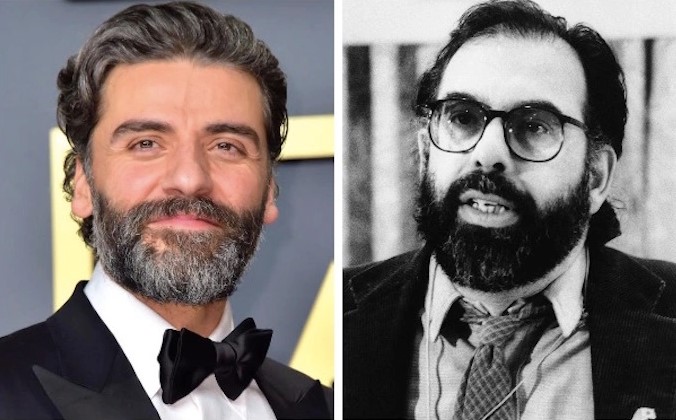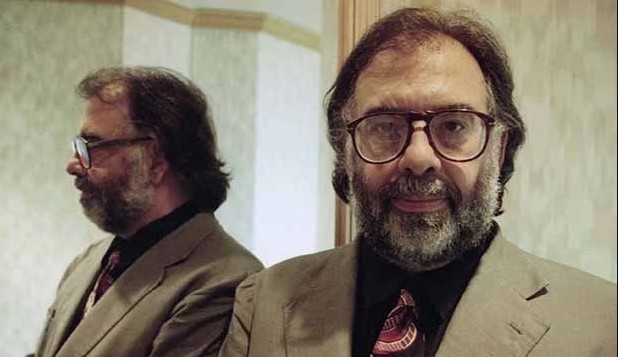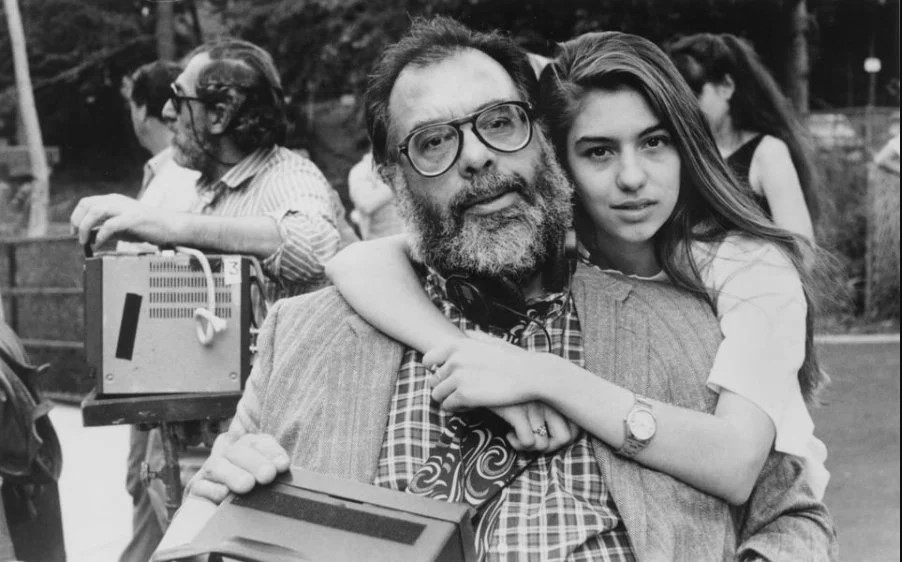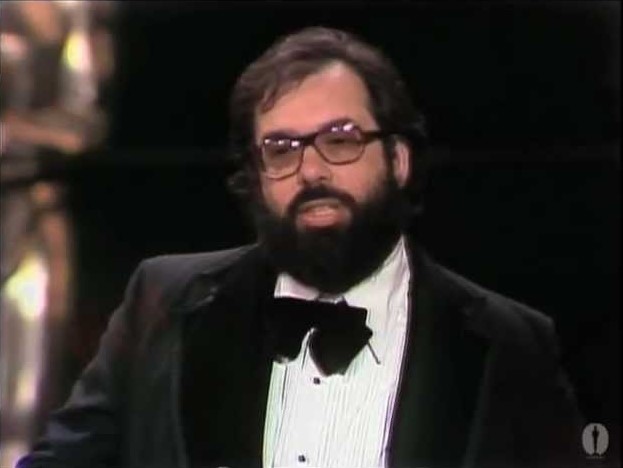Are you a follower of Francis Ford Coppola? Are you searching on google for How to contact him? What is the WhatsApp number, contact number, or email id of Francis Ford Coppola? What is the hometown and residence address of Francis Ford Coppola? Who is the Contact Agent, Manager Francis Ford Coppola? What is the Facebook, Twitter, or Instagram id of Francis Ford Coppola? find out all these things in our article below.
Francis Ford Coppola Wiki/Bio
American cinema director, screenwriter, and producer Francis Ford Coppola (born April 7, 1939, in Detroit, Michigan) is known for everything from grand epics to intimate character studies. While working on films like The Godfather in the 1970s, The Conversation in the ’74, and Apocalypse Now in the ’79, he was trying to develop an alternative to the Hollywood film production and distribution system.
After his father Carmine Coppola, a frustrated composer, moved his family to the New York City area, he went on to play flute in numerous orchestras, including Arturo Toscanini’s NBC Symphony Orchestra. Coppola was raised in and around Queens, New York, as well as Great Neck, New York. While recuperating from polio at nine years old, he created puppet performances for himself and soon began making 8mm films.
While attending Hofstra University for his undergraduate degree, he attended the University of California, Los Angeles for his master’s, where he focused on filmmaking. When Coppola started working for Roger Corman’s American International Pictures, he was doing work such as second-unit photography and direction, among other things.
The Magic Voyage of Sinbad and Battle Beyond the Sun, Coppola’s re-edited versions of two Russian films, were dubbed with Coppola’s language (both 1962). In Ireland, Coppola convinced Corman to pay up $20,000 for his first directorial effort, Dementia 13 (1963), a bloody horror picture based on a quickly written story by Coppola.
The following year, as a Seven Arts contract writer, Coppola contributed to the scripts of This Property is Condemned and Is Paris Burning?, and for his master’s thesis film, he wrote and directed You’re a Big Boy Now. The story of a virginal young man (played by Peter Kastner) seeking love while working for the New York Public Library was a simple one, yet it was full of memorable moments. the Lovin’ Spoonful provided the soundtrack and the film featured a stellar ensemble cast (including Elizabeth Hartman, Karen Black, Rip Torn, Tony Bill, Julie Harris, and Geraldine Page).
Because Warner Brothers were so impressed with the picture, Coppola was tapped to direct the high-profile musical Finian’s Rainbow (1968). A scathing satire of racism adapted from a Broadway play from the 1940s, it starred Fred Astaire, who was a virtuoso of the dance, but it stumbled due to the resignation of choreographer Hermes Pan mid-production.

The Rain People, Coppola’s next film, received $750,000 in funding from Warner Brothers (1969). A pregnant Long Island woman (Shirley Knight) quits her husband and hits the road in this Francis Ford Coppola scripted and directed the film. A former football player with mental impairment (James Caan) and a Nebraska police officer cross her path the most substantially (Robert Duvall).
The Rain People was financed by Warner Bros. in conjunction with another Coppola Zoetrope Production, THX 1138, which was directed by Coppola’s good friend George Lucas. With Coppola’s box office underwhelming and Lucas’s rough first cut leaving them cold, the studio dissolved their alliance with him. Meanwhile, Coppola and Franklin Schaffner shared an Academy Award for their script for Patton (1970).
The Godfather (1972), a creative, hugely profitable, and physically imposing adaptation of Mario Puzo’s blockbuster novel of the same name, was Coppola’s breakout film. The Godfather was not only a critical and commercial success (it was the fifth highest-grossing film of the 1970s), but it was also named third on the American Film Institute’s all-time top 100 American films list in 1998.
The Godfather is a mythological gangster picture, but it’s also the narrative of a father and his kids, a brutal, emotionally charged exploration of a Mafia family. The role of Vito Corleone, played by Marlon Brando, earned him the Academy Award for Best Actor. It was John Cazale, Caan, and Al Pacino who portrayed his sons, with Robert Duvall serving as his close friend and advisor throughout the film (the last three were nominated for best-supporting actor awards). Coppola and Puzo shared the award for a best-adapted script, and Coppola was nominated for best director.
Coppola wrote, directed, and produced The Conversation (1974), a reflection on technology’s dehumanizing effect, now that he had the financial resources to do it. Gene Hackman played a surveillance expert who has reason to believe that a married couple he has been listening in on is about to be murdered. Although some found the film to be too depressing, it was nominated for an Academy Award for best picture despite its Oscar-nominated screenplay and great performances.
 Career
Career
It was he who beat Coppola in the end, like The Godfather: Part II (1974) won the Oscar for best film that year. Taking place in the 1950s and the early years of the twentieth century, Godfather II served as a bookend to The Godfather’s events by providing counterpoint storylines (and, in the process, the original film). To become a “godfather” in New York City’s Little Italy, Vito Corleone, played by Robert De Niro, had to conquer it piece by piece.
In a parallel scenario set in the 1950s, Vito’s son Michael (played by Pacino) makes an effort to legitimize the Corleone family. An immigrant family’s struggle for survival in America was made crystal clear in The Godfather: Part II. The Academy Award for best-supporting actor went to Robert De Niro, who was nominated with Michael V. Gazzo and Actors Studio guru Lee Strasberg. Carmine and Nino Rota received the award for the best musical score, and Coppola and Puzo shared the best screenplay award. Furthermore, Coppola and Puzo won the best director and best screenplay awards.

At the height of his fame, Francis Ford Coppola began work on the arduous project of filming Apocalypse Now (1979), which adapted Joseph Conrad’s novella Heart of Darkness for the Vietnam War from a screenplay he co-wrote with John Milius and Michael Herr. Coppola, John Milius, and Michael Herr were all involved in the filmmaking process.
Natural disasters (a typhoon and an earthquake hit the Philippines while filming), human tragedy (actor Martin Sheen had a heart attack and nearly died while filming), and a lack of humility afflicted the production. Coppola’s intended $12 million budget ended up costing $30 million, largely because of Coppola’s own wastefulness.
Coppola footed the bill for much of the overrun. Additionally, the high production costs and rumors from the tumultuous set tarnished Coppola’s already tarnished image as Hollywood’s crown prince. Eleanor Coppola’s journal Notes (1979) and the documentary Hearts of Darkness both covered the film’s mercurial creation (1991).
The movie Apocalypse Now is often considered a flawed masterpiece, despite its well-documented troubles and setbacks. In particular, when Duvall and Frederic Forrest are in the spotlight, it’s gripping. Critics were divided on Brando’s portrayal of the psychotic Colonel Kurtz, with some praising it while others scorning it, but it’s impossible to ignore now. Apocalypse Now was nominated for eight Academy Awards, including best picture, and it was a financial success, becoming the sixth most grossing film of the year.

Using the money he’d earned from his films, particularly the Godfather series, Coppola began working toward his goal of founding an anti-establishment studio that could compete with the major Hollywood studios in 1980. He founded Zoetrope Studios on the site of the previous Hollywood General Studios, vowing to use the most up-to-date filmmaking and distribution methods (including his vision of satellite-enabled distribution).
Even though the studio’s debut film, an ultra-stylized romantic comedy produced and written by Francis Ford Coppola, cost $27 million to make, it bombed at the box office. Despite the fact that Coppola had to liquidate many of his holdings and close his Los Angeles studio, he continued to run his production firm in his hometown of San Francisco after the bankruptcy.
In 1983, Coppola retrenched by directing two film adaptations of S.E. Hinton’s young-adult novels, both of which were published in the commercial marketplace. The Outsiders, which was released first and starred Matt Dillon and a slew of future stars like Patrick Swayze, Tom Cruise, Rob Lowe, Emilio Estevez, and Diane Lane, told a narrative of teenage alienation in the vein of Rebel Without a Cause. Rumble Fish, a black-and-white expressionist picture with Dillon, was arguably superior.

It had been a long time since Coppola made a big-budget gangster film like The Cotton Club (1984), and while it was stylish, well-cast, and lavishly produced, most critics felt that Coppola’s ambition had exceeded his grasp with this reimagining of 1930s Harlem. With Peggy Sue Got Married (1986), Coppola made a departure from his usual filmmaking formulas.
Kathleen Turner, a dissatisfied married lady (Kathleen Coppola’s niece), is sent back in time to her senior year of high school, where she has a second chance to judge her dreadful spouse (Cage). With his next film, the somber Gardens of Stone (1987), Coppola portrayed soldiers assigned to Arlington National Cemetery during the Vietnam War, with James Caan as the commanding sergeant, Anjelica Huston as his love interest, and D.B. Sweeney as the gung-ho young man whose wish to fight overseas is tragically granted by the military in Vietnam. Critics and viewers panned the film, but Coppola’s personal life was torn apart by the death of his son Gian-Carlo in a boating accident a year earlier.
Facts About Francis Ford Coppola:
Birthday/Birth Date: 7 April 1939
Birth Place: Detroit, Michigan, United States
Children:
Age: 82 Years old
Official TikTok:
Occupation: director
Height: 1.82 m
Popular Friends: NA
Business Facts:
Salary of Francis Ford Coppola: NA
Net worth: NA
Total TikTok Fans/Followers: NA
Facebook Fans: NA
Twitter Followers: 1,468 Followers
Total Instagram Followers: 1632
Total YouTube Followers: NA
Some Important Facts About Francis Ford Coppola:
1. Francis Ford Coppola was born on 7 April 1939 (age 82 years), Detroit, Michigan, United States
2. His age is 82 years.
3. His birth sign is Aries.
4. His height is 1.82 m.
5. His net worth is $2 billion.
Francis Ford Coppola Fan Mail address:
Francis Ford Coppola, Francis Ford Coppola Presents,
Llc., 300 Via Archimedes, Geyserville,
CA 95441-9325, USA.
Francis Ford Coppola Phone Number, Email Address, Contact Info, Texting Number, Fanmail, and More Details
| Francis Ford Coppola Phone Number, Email ID, Address, Fanmail, Tiktok and More | |
|---|---|
| Email Address | NA |
| NA |
|
| House address (residence address) | Detroit, Michigan, United States |
| https://www.instagram.com/virginiadarewine/ | |
| Office address | NA |
| Office Number | NA |
| Official Website | NA |
| Phone Number | (707) 968-1100. |
| Snapchat Id | NA |
| TicTok Id | NA |
| Twitch | NA |
| https://twitter.com/coppolaford?lang=en | |
| Whatsapp No. | NA |
Francis Ford Coppola Phone Number:
Francis Ford Coppola Address: Detroit, Michigan, United States
Francis Ford Coppola Phone Number: (707) 968-1100.
Francis Ford Coppola Whatsapp Number: NA
Francis Ford Coppola Email ID/ Email Address: NA
Francis Ford Coppola Social Profiles
Francis Ford Coppola Facebook Fan Page: NA
Francis Ford Coppola Twitter Handle: https://twitter.com/coppolaford?lang=en
Francis Ford Coppola Instagram Profile: https://www.instagram.com/virginiadarewine/
Francis Ford Coppola Snapchat Profile: NA
Francis Ford Coppola YouTube Channel: NA
Also Checkout: Gus Van Sant Phone Number, Email ID, Address, Fanmail, Tiktok and More
